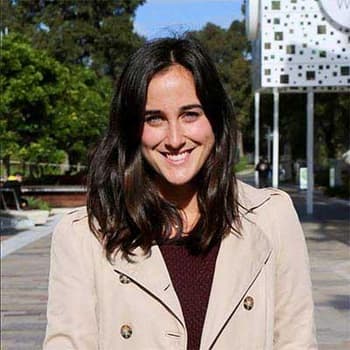Treatments for disruptive mood dysregulation disorder (DMDD) can improve symptoms and functioning in children. Learn more about the types of treatments available.
Temper tantrums and outbursts are a normal part of early development. However, extreme emotional or behavioral issues may be a sign of a bigger problem.Disruptive mood dysregulation disorder (DMDD)is a mental health condition that occurs during childhood and is characterized by intense and persistent irritability. DMDD can impair a child’s ability to participate in school, family and social life normally.
Disruptive mood dysregulation disorder treatmentaims to help children understand and cope with their feelings in a helpful way. SeekingDMDD treatmentcan reduce some of the emotional or behavioral symptoms that prevent children from participating in their usual activities. Adisruptive mood dysregulation disorder treatment planmay include therapy, medication or a combination of the two, with thegoalof improving a child’s functioning.
Psychotherapy
Therapy for DMDDis considered a front-line treatment and should be the first step in a child’s treatment plan. There are several types of therapy that have been proven effective for DMDD, including:
- Cognitive behavioral therapy (CBT):CBTfor disruptive mood dysregulation disorderis a common treatment option.CBT for DMDDtargets problems with regulating emotions or social behavior and helps children learn strategies to manage and change their thoughts, feelings and behaviors.
- Dialectical behavioral therapy for children (DBT-C):DBT-C is a blend of cognitive behavioral therapy techniques as well as acceptance-based strategies. ThisDBTapproach can help children acknowledge and accept frustrations and stressors and develop strategies that reduce negative reactions to these feelings.
Medication
In some cases,medication for disruptive mood dysregulation disordermay be recommended. The need forDMDD medicationis usually determined based on the presence of any co-occurring mental health conditions, such asattention-deficit hyperactivity disorder (ADHD)oranxiety.
Treatment Can Be Life Changing. Reach out today.
Whether you are struggling with addiction, mental health or both, our expert team is here to guide you every step of the way. Don’t wait— reach out today to take the first step toward taking control of your life.
Medications used to treat DMDD may include:
- Stimulants:Stimulants, such asRitalin, may be prescribed toaddressemotional reactivity. These medications can allow a child to regain control over their emotions, which can help them express them in a more appropriate way. Importantly, this medication is prescribed for children that have an overlapping diagnosis of ADHD, rather than DMDD on its own.
- Antidepressants:Antidepressants, such asSSRIs, might be prescribed to addresssymptoms of aggressionthat are common in DMDD. This medication can improve a range of symptoms that are present in DMDD. However,antidepressantsare typically only prescribed if DMDD co-occurs with another mental health condition, such as ADHD.
- Atypical antipsychotics:Antipsychotic medication, such asRisperdal or Aripiprazole,are often prescribed in young people diagnosed withbipolar disorder. Because DMDD and bipolar can have similar symptoms, parents may wonder if this medication can also be helpful for children with DMDD. While there is some support for low-dose Risperdal in reducing symptoms of irritability, there are also concerns about theside effectsof this medication in young people.
DMDD treatment using medicationshould not be considered the first option for treatment, as there is little evidence attesting to the success of medication for DMDD when used without therapy. Medication may be a more suitable option — in combination with therapy — for children suffering from multiple mental health conditions.
Computer-Based Training
Computer-based training for DMDDhas been used to help childrendevelop new skillsto improve their symptoms. For example, children with DMDD are typically more likely to interpret neutral facial expressions as angry. Because of this, they may be more likely to react as irritable.
Computer-based training can help children with DMDD process facial expressions more appropriately, which can reduce irritability. These strategies might be used in combination with other therapies to help children develop new skills and manage their symptoms.
Parent Training
Behavioral parent training is often used inADHD treatmentbut might also benefit children with DMDD.DMDD parent trainingaims to reduce thecycleof negative interactions between child and parent and helps parents learn how to respond appropriately to their child.
For example, a parent may learn to reward positive or appropriate behavior and ignore or discipline negative behavior like tantrums or outbursts. This type of skill-building can help parents feel adequately equipped to manage a child’s outbursts or tantrums. Parent training can also help parents to act as coaches or provide support as their child works to use new skills and techniques to manage mood and behavior.
Disruptive Mood Dysregulation Disorder Outlook
Theoutlook for DMDDcan vary, depending on an individual child’s circumstances. In the majority of cases, DMDDoccurs alongside another disorder, which can impact both treatment strategy and recovery. However, rates of DMDD do appear to be highest in preschool-aged children and tend to drop as children age.
DMDD can be very impairing for both the child and their family. There is evidence thatbehavioral treatment strategies, such as therapy and parent training, can reduce symptoms in children and improve their ability to function. As behavioral and emotional problems can be risk factors for future mental illness, seeking treatment in childhood can be important to promoting future mental health.
As a new diagnosable disorder that usually occurs with other psychiatric conditions in children, there is no single recommended treatment strategy for DMDD. Parents should discuss individual treatment options for DMDD based on other conditions and symptom severity.
Related Topic:Disruptive behavior disorder treatment








